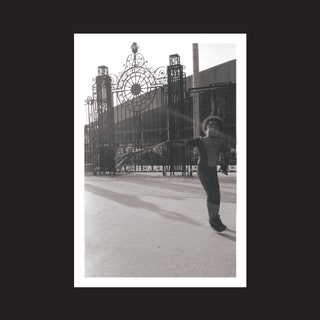On their latest album, the free jazz collective expands their palette to great effect, channeling the hopes of the past to demand liberation in the present.
Born in the wake of the murder of Caribbean immigrant Akai Gurley by NYPD, Irreversible Entanglements harnessed the righteous rage they felt on their self-titled debut LP. Since then, the band’s experimental jazz has expanded, comfortably taking up more space and broadening in sound and scope. Their 2020 LP Who Sent You? looked to the past with a more restrained approach, as poet and vocalist Camae Ayewa (aka Moor Mother) reflected on the systemic racism and disenfranchisement that led us to this point. On Open the Gates, alternative histories are explored in an attempt to reshape the present and pave the road for a better future. This might seem like an impossibly abstract idea, but Ayewa has dedicated years to thinking through how Black and Afro-diasporan traditions of time relate to these principles. For her, music is a practical tool for time travel, and on this record, the quintet persuasively uses improvisation and incendiary poetry to channel past hopes in order to demand present liberation. Rooted in the free jazz tradition and Black experimentalism, the record is an exhortation to demolish the concrete and mental barriers that prevent radical change.
Beginning with Ayewa’s cry of “Open the gates, we arrive, energy time,” the record starts with eyes clearly focused on the future. Driven by Tcheser Holmes’ galloping rhythms and Luke Stewart’s looping bass, it marches ahead with resolve as surging horns swell with mounting tension, like a call to battle. But soon enough the cosmic instrumentation of “Keys to Creation” beams us back in time, with percussion that ticks away expectantly. Filled with determination, Ayewa’s voice dances with Aquiles Navarro’s trumpet as she finds strength in her forebears. Here their nod to the ancestors most clearly evokes New York Art Quartet and their work with Amiri Baraka, whose words “the future is always here in the past” echo throughout the album. But their improvisational approach is one that has a long lineage, and in their hands it is just as compelling, able to viscerally capture the deep emotions of the present moment while liberating minds from everyday struggles. “Lágrimas Del Mar” is one of the album’s most freeform pieces, and a testament to band’s sheer force, as the shifting rhythms and powerful improvised brass lines create a battering ram capable of challenging the foundations of oppression.
Just as important is Ayewa’s reverence for the Black women who’ve come before her. On “Six Sounds,” through the mournful peals of Keir Neuringer’s sax and a tentative rhythm section, she invokes, “Billie, Nina, Sarah, Nina, Betty, Abbey,” and asks, “Was it a dream to be more than healing?” It’s an ode to those that paved the way, and by celebrating this heritage she forges a way forward.
On Open the Gates, Irreversible Entanglements delve into new terrain, adding electronic instrumentation and lengthening their free jazz workouts. Synthesizers appear sparingly, but contribute to weaving tense and expansive atmospheres, further deepening the emotional breadth of their music. At times, post-apocalyptic synths appear as sudden tectonic shifts, capturing the anxiety of the moment, while opening new possibilities for the future. “Water Meditation” channels the foreboding energy of a brewing thunderstorm. Sprawling for twenty minutes, it is a collision of sound that shakes with propulsive drums, Ayewa’s shouts, and clamorous horns. While the lyrics are often cryptic, they contribute a demanding presence to this barrage, summoning you to the band’s vital call.
For Irreversible Entanglements, it is the tangible prospect of liberation, rather than immediate anger, that adds fuel to the fire. On “Lágrimas Del Mar” a better world feels within reaching distance, as Ayewa chants, “Cause I’m so close. Because we are so close to the good news” over interweaving, pointed horn lines. It’s a rousing sentiment, born out of a lifetime of engagement and struggle, carried by the longing of those who came before.



0 comments:
Post a Comment